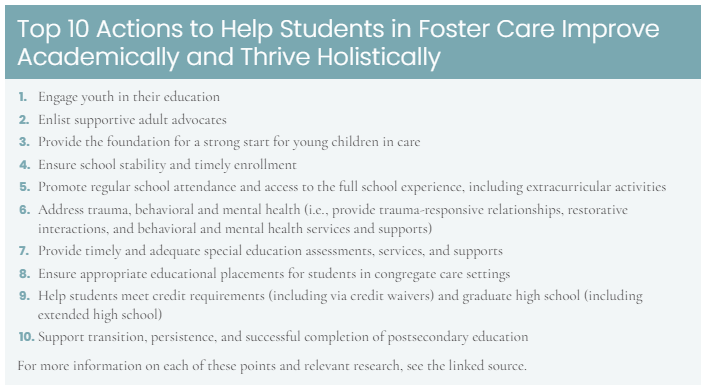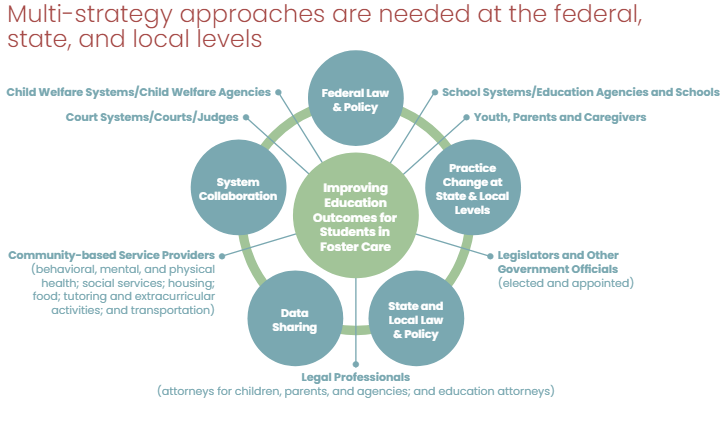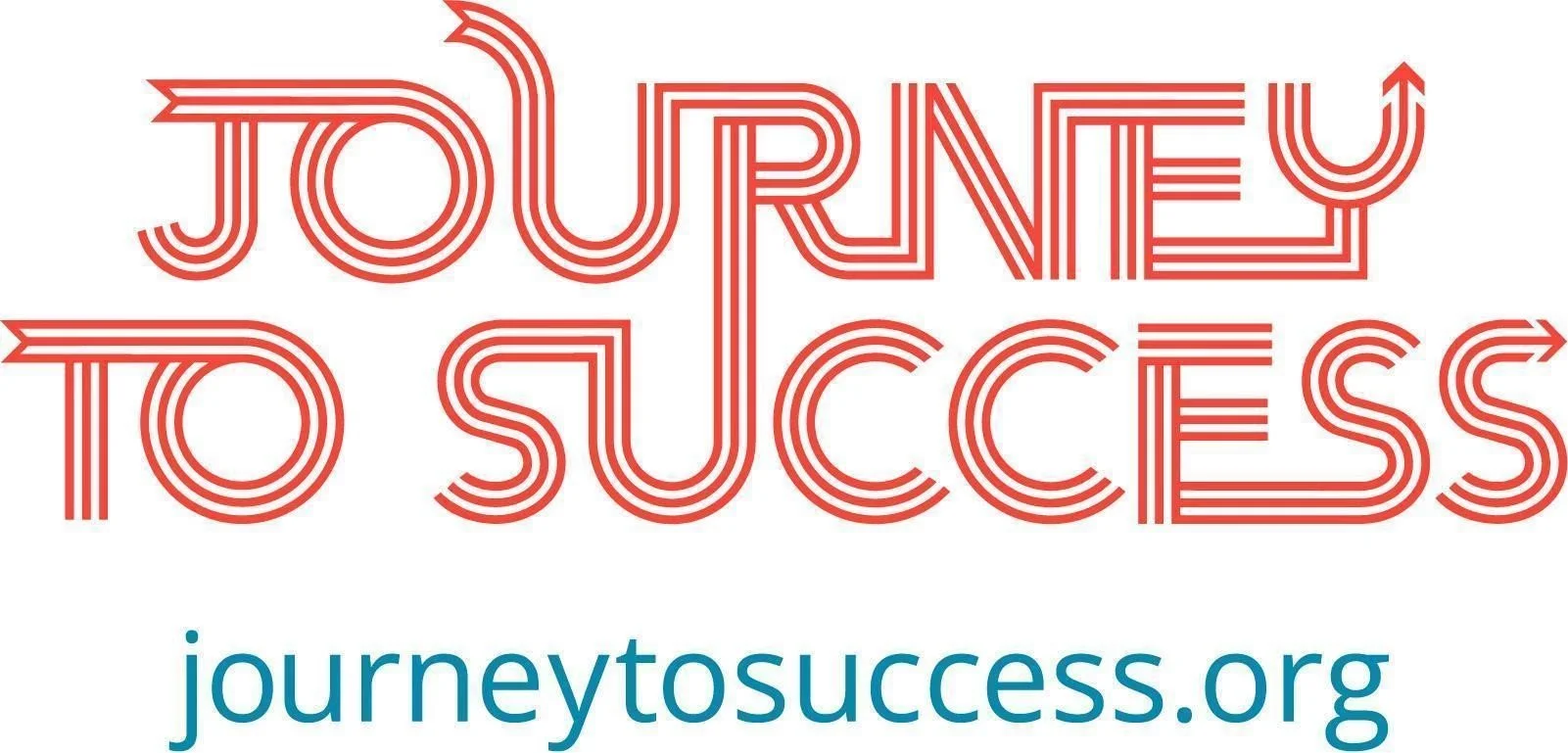
National Working Group on Foster Care and Education
To improve education outcomes and holistic well-being of children and youth in foster care across the country, several national organizations, state-based organizations, legal services, independent consultants, foundations, lived experts, researchers, and others who work on behalf of, and in solidarity with, youth and families impacted by the foster care system, have joined together as the National Working Group on Foster Care and Education.*
Our Purpose: The National Working Group on Foster Care and Education (NWG) strives to harness our collective power to co-create healthy conditions in which children and youth in foster care experience holistic well-being and thrive academically as joyful, engaged, and supported students.
Our Strategy: NWG heightens national awareness of the educational needs of children and youth in foster care and promotes best and promising practices across systems to improve education outcomes and holistic well-being. Effective collaboration among impacted children and youth, parents and caregivers, child welfare systems, school systems, court systems, community-based service providers, legislators, and other government officials is required to achieve practice, policy, and cultural changes that support educational stability and student success.
*The National Working Group is facilitated by the Legal Center for Foster Care & Education.
The National Working Group encourages its members and the broader community to take action in solidarity with students in foster care to help them connect to supportive networks and achieve success in school and beyond.

Students in foster care face several challenges and barriers to educational progress, such as school instability, delayed enrollment, attendance and truancy, credit attainment, access to special education, disproportionate school discipline rates, over-representation in special education, inappropriate on-site education programs.
To improve outcomes and address the challenges and barriers that students in foster care face, systems must collaborate and provide multidisciplinary support.

Member Organizations

Stay Connected
Email Us
Join Our Mailing List
Follow Us On Social
























